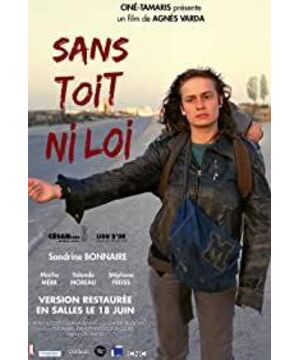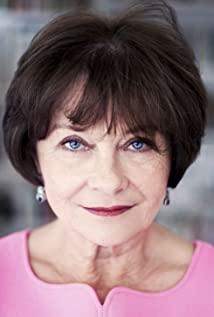/Those imaginary lives/
Mona wandered around, met some people, and quickly left. In my impression, there is very little in-depth communication between them, and there is no deep-seated confession. Mona is like a dragonfly, lightly staying at a certain point, and then leaving quickly without any trace. However, she still caused waves in the hearts of some people: a young girl began to say that sometimes eating is not as important as freedom; the female professor blamed herself for not helping Mona; the nanny envied Mona's "love" and Take it as a model... In the imaginations of those who meet Mona by chance, Mona is a symbol of freedom, an ideal, a place to put emptiness. But what about the actual situation? As an audience, I watched Mona more lastingly than those strangers. I know that Mona's actual life is still far from their imagination. When they become the same audience as me, they Will not say such words and will not have such thoughts.
/about freedom, wandering, staying/
Mona is undoubtedly free. She has no fetters from her native family, and she is almost out of society, without any rules, etiquette constraints, imposed on her. And then the realization of this freedom is largely due to wandering, and space-based rules therefore cannot reach her. But, in turn, would "staying" damage her freedom? This of course cannot be generalized. She can choose to live alone near Walden Pond like Thoreau, which also enjoys maximum freedom; or with someone who can accept her, such as a vineyard employee, at least he will not Trying to point fingers at Mona (but it's hard to tell in a long time), Mona is also willing to be with one of them for the first time after meeting many people... In general, I think that there are more ways to be free A kind of wandering.
/about Mona's freedom/
Shepherd, who used to be a Ph.D. but is now just "returning to nature" with his wife and daughter, briefly took in Mona. What he said to Mona was impressive: "Total freedom brings utter loneliness, and utter loneliness devours people." I don't quite remember Mona's answer, but I do remember that she was to the shepherd Disdainful, disapproved.
So, Mona didn't follow the shepherd's advice, did the later life confirm the shepherd's words? I don't think so, Mona ended up dying from physical pain, not loneliness. She just came to an end naturally, without being swallowed.
Yet many of the characters I see in the film see what the Shepherd calls "utter loneliness." It's hard to describe, they are not completely disconnected from others like Mona, they are just working and living. However, I don't see them interacting too much with others other than conversations and fixed actions, which is not any different from Mona in a sense.
It pains me to watch Mona, I think she still sticks to her freedom in the end, and is not burdened by loneliness, but the life she sees through her is despairing. living alone without a family” was terrified.
But maybe that's just part of life, there's more that Zelda doesn't let us see. After a long time of despair, I consoled myself like this.
I gradually realized that life is led by hope, because I repeatedly give myself hope.
View more about Vagabond reviews










